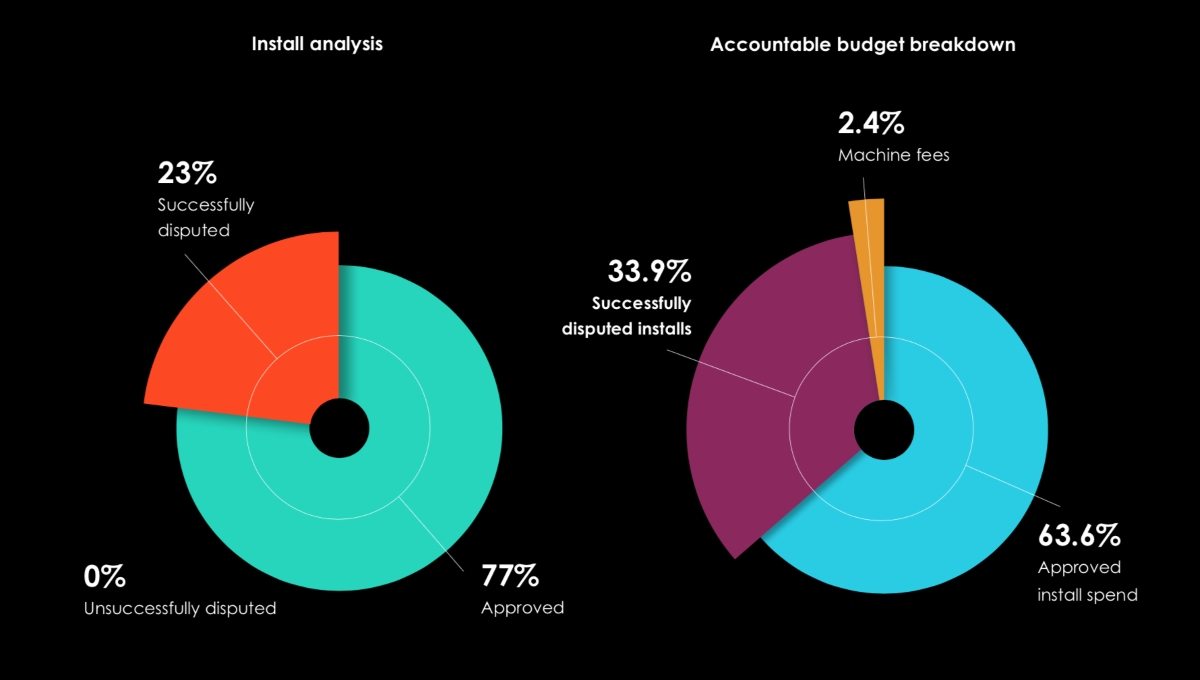How to get reimbursed for fraudulent app installs, quickly and without argument
- Monday, March 4th, 2019
- Share this article:
Hannah Graham, commercial director at Machine, looks at how you can remove friction from the reimbursement process after youve identified fraudulent app installs
 So, you’ve started to identify the fraud in your app install campaigns. Great. Now you just have to get your money back from the suppliers.
So, you’ve started to identify the fraud in your app install campaigns. Great. Now you just have to get your money back from the suppliers.
Unfortunately, if you’re doing it manually, this dispute process is very time-consuming and arduous. It most often means sifting through campaign data to find suspicious installs, or anything that has broken the basic rules and parameters agreed with networks, followed by lengthy negotiation.
At this point, the agency or brand – whoever is managing the campaign – has to agree with the ad network what installs should be paid for, and whether there’s enough evidence to back up these disputes.
The problem with probabilistic
This becomes even more difficult if you’re using compliance rules. Used by nearly all advertisers, networks and other fraud solutions in the market, these identify suspicious installs based on simple probabilistic rules – such as click-time-to-install-time thresholds. The problem is, they’re inaccurate and ineffective. It’s like trying to perform surgery with a mallet.
The result is that a large number of fraudulent installs get missed, and some false positives are included in dispute reports.
If you’re trying to dispute with this kind of data, which isn’t really actionable, you will be missing a significant amount of fraudulent activity – and are likely to experience pushback from suppliers.
The right tool for the job
This is why Machine collects multiple signals against each install, providing you with a much deeper understanding of why that install is fraudulent. Our dispute reports can have up to 14 individual pieces of evidence for a single install, leaving no room for argument.
For the delicate surgery of fraud detection, we provide the tool you actually need – a scalpel, not a mallet.
In fact, the granularity of data means that networks can actually use our dispute reports to improve their own traffic sources – thereby allowing the whole supply chain to take action against install fraud. This is what is ultimately required to engineer real change in the market.
Saving time and money
We work with one gaming company which delivers around 350,000 paid installs a month. They formerly handled fraud analysis and supplier disputes manually, resulting in a dispute process that lasted, on average, six working days. Overall, between four and eight per cent of monthly installs were detected as fraudulent and successfully disputed, saving them $20,000 per month.
With Machine, 23 per cent of installs were detected as fraudulent – 100 per cent of them were successfully disputed, resulted in savings of $177,100. For every $1 spent with Machine, the company saved $13.62.
 By automating the process, the client saved time, removed human error from the equation, and increased the frequency, accuracy and quantity of identification. As fraud is detected in real-time, the dispute process isn’t left until the end of the month, meaning fraudulent sources can be identified – and stopped – much quicker and earlier.
By automating the process, the client saved time, removed human error from the equation, and increased the frequency, accuracy and quantity of identification. As fraud is detected in real-time, the dispute process isn’t left until the end of the month, meaning fraudulent sources can be identified – and stopped – much quicker and earlier.
We’d like to see a shift away from lengthy dispute processes requiring extensive negotiation. In an ideal world, once you’ve chosen to partner with Machine, you shouldn’t really have to think about app install fraud, and be free to just get on with the rest of your job.















